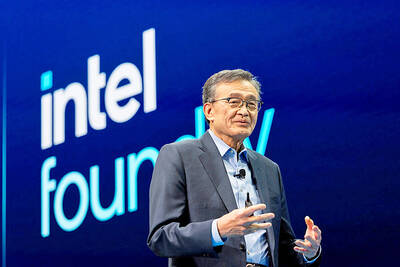The output of the global smartphone industry this year is to contract by 7.8 percent on an annual basis as the COVID-19 pandemic ushers in a global recession, Taipei-based market researcher TrendForce Corp (集邦科技) said in a report on Monday.
The global production of smartphones is expected to fall to 1.29 billion units, as the pandemic dampens demand for consumer electronics, leading to a decline in shipments across Europe and North America, TrendForce said.
With consumers delaying smartphone purchases and thereby lengthening the device replacement cycle, overall prices would suffer a setback that is expected to negatively affect the profitability of smartphone makers as they also face rising costs across the supply chain, the report said.
As the pandemic grows in scale, fostering uncertainty and triggering a recession that could potentially surpass the 2008 global financial crisis, smartphone demand is likely to weaken further, it added.
TrendForce forecast that global smartphone shipments would decline to 274 million units in the first quarter of this year, down from the 307 million units it had previously estimated.
The researcher also slashed its forecast for laptop shipments in the first quarter by 20.3 percent to 27.9 million units, as Chinese production in February was hampered by the coronavirus.
As the situation stabilizes in China next month, laptop production and the supply of upstream materials are expected to return to normal, but there is likely to be falling demand for laptops as the pandemic sweeps the globe, it said.
With lockdowns affecting most of Europe and the US, which account for more than 50 percent of global laptop sales, TrendForce has trimmed its shipments forecast for this year by 3.5 percent to 156.7 million units.
Despite an increase in demand for education-use Chromebooks and commercial laptops as more people work from home, the pandemic has dealt a blow to consumer confidence and the industry as a whole, it added.

Mercuries Life Insurance Co (三商美邦人壽) shares surged to a seven-month high this week after local media reported that E.Sun Financial Holding Co (玉山金控) had outbid CTBC Financial Holding Co (中信金控) in the financially strained insurer’s ongoing sale process. Shares of the mid-sized life insurer climbed 5.8 percent this week to NT$6.72, extending a nearly 18 percent rally over the past month, as investors bet on the likelihood of an impending takeover. The final round of bidding closed on Thursday, marking a critical step in the 32-year-old insurer’s search for a buyer after years of struggling to meet capital adequacy requirements. Local media reports

US sports leagues rushed to get in on the multi-billion US dollar bonanza of legalized betting, but the arrest of an National Basketball Association (NBA) coach and player in two sprawling US federal investigations show the potential cost of partnering with the gambling industry. Portland Trail Blazers coach Chauncey Billups, a former Detroit Pistons star and an NBA Hall of Famer, was arrested for his alleged role in rigged illegal poker games that prosecutors say were tied to Mafia crime families. Miami Heat guard Terry Rozier was charged with manipulating his play for the benefit of bettors and former NBA player and

TECHNOLOGICAL RIVALRY: The artificial intelligence chip competition among multiple players would likely intensify over the next two years, a Quanta official said Quanta Computer Inc (廣達), which makes servers and laptops on a contract basis, yesterday said its shipments of artificial intelligence (AI) servers powered by Nvidia Corp’s GB300 chips have increased steadily since last month, should surpass those of the GB200 models this quarter. The production of GB300 servers has gone much more smoothly than that of the GB200, with shipments projected to increase sharply next month, Quanta executive vice president Mike Yang (楊麒令) said on the sidelines of a technology forum in Taipei. While orders for GB200 servers gradually decrease, the production transition between the two server models has been

BETTER THAN EXPECTED: The firm’s Q3 results exceeded its projections, based on ‘the underlying strength of our core markets,’ chief financial officer Dave Zinsner said Intel Corp returned to profitability and gave an upbeat revenue forecast after PC demand grew, suggesting that it is making progress on a long and challenging comeback attempt. In the third quarter, revenue rose 3 percent to US$13.7 billion. The Santa Clara, California-based company posted its first quarterly net income since the end of 2023, with earnings per share of US$0.23, excluding some items. Analysts had estimated sales of US$13.2 billion and earnings per share of US$0.01 on average, according to data compiled by Bloomberg. Fourth-quarter sales would be roughly US$13.3 billion, the company said in a statement on Thursday. Intel shares gained about